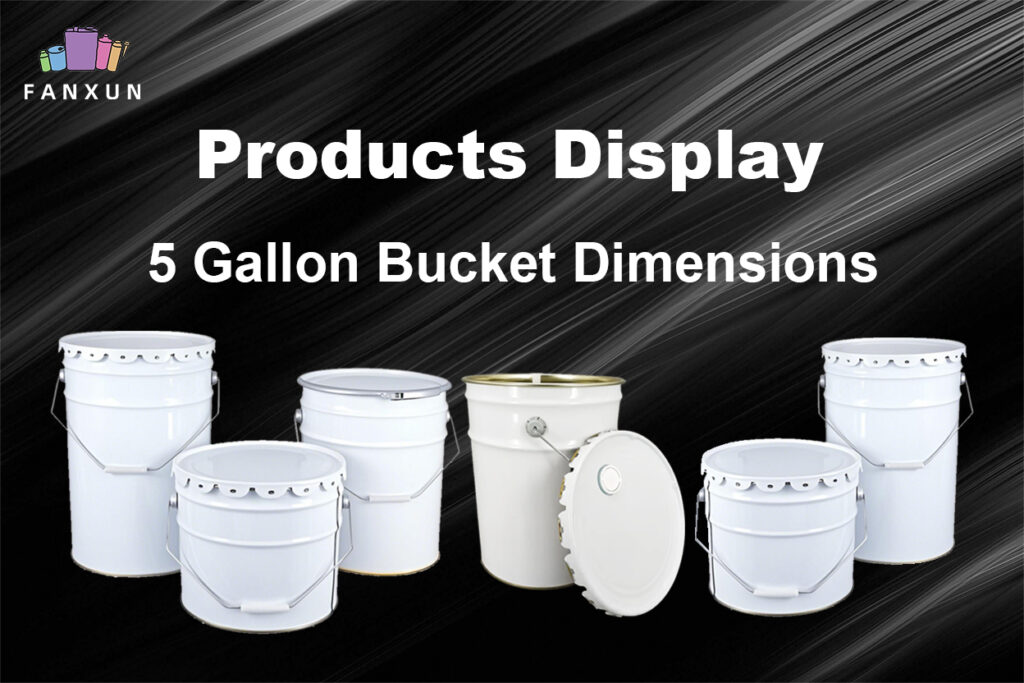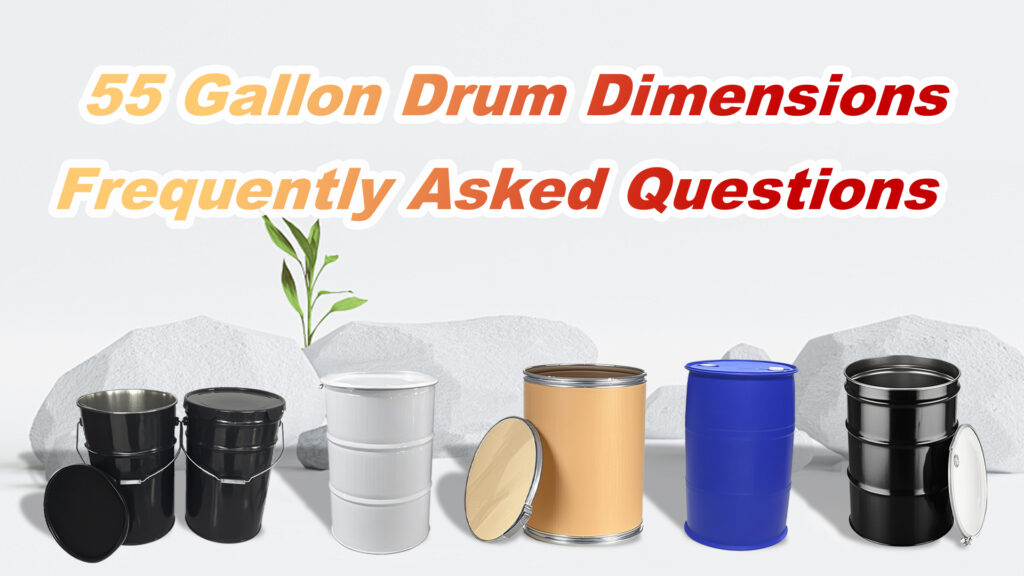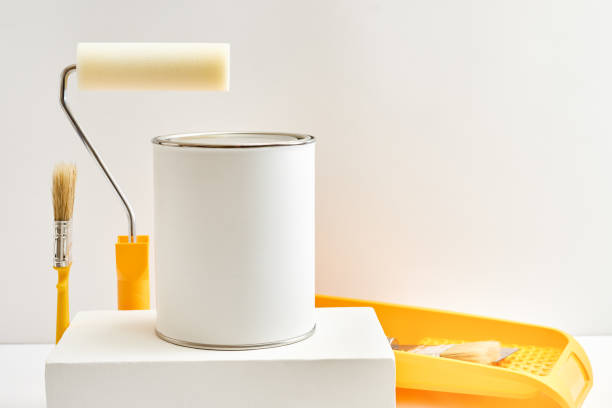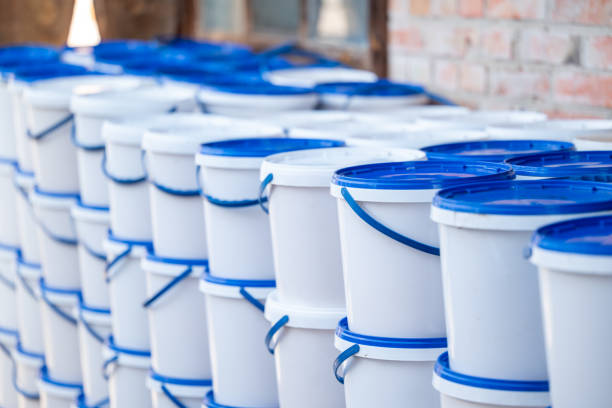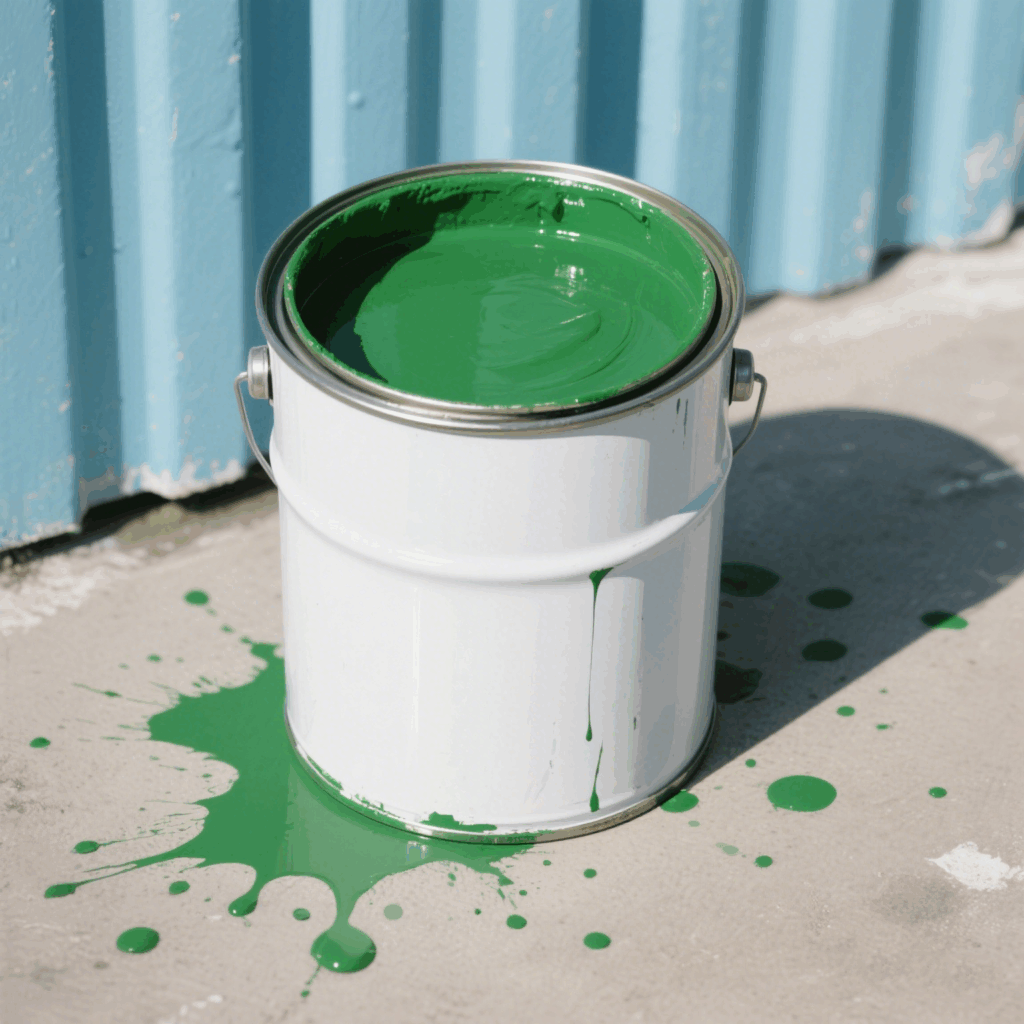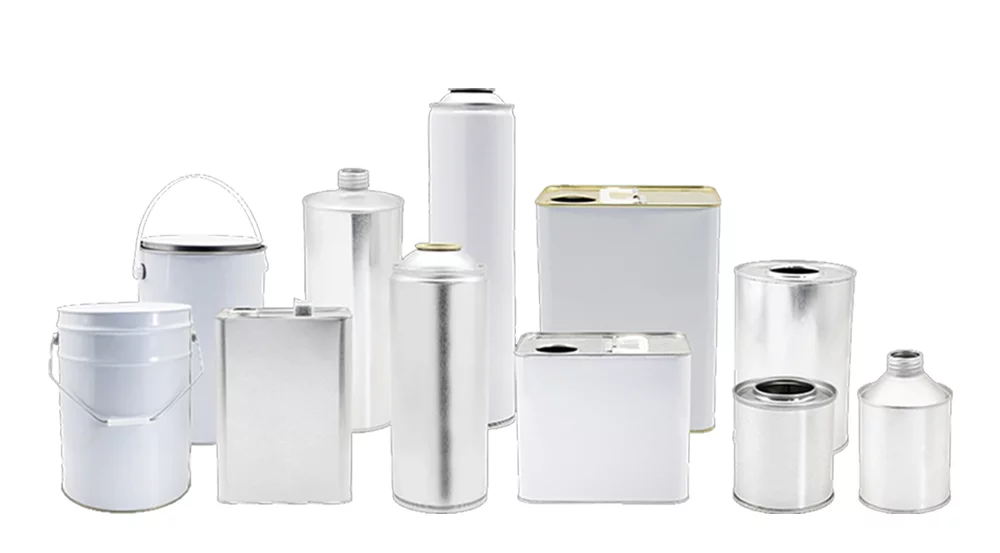Vì thế, you’ve just finished changing your car’s engine oil – kudos for taking on that DIY task! But now you’re left with a container of used, black oil, and you’re probably wondering, “Where can I dispose of this old engine oil?” It’s a common question, and the answer is crucial. Improperly disposing of used engine oil can have devastating consequences for the environment and can even land you in legal trouble.
Worry not! This guide is designed to walk you through everything you need to know about getting rid of old engine oil responsibly. We’ll cover why it’s important, how to prepare your oil for disposal, the various places you can take it, and some frequently asked questions to clear up any lingering doubts.
Why Proper Engine Oil Disposal is Non-Negotiable
Used engine oil doesn’t just disappear if you pour it down the drain or onto the ground. It’s a hazardous waste product containing heavy metals and toxic chemicals picked up from your engine, such as arsenic, lead, cadmium, and polycyclic aromatic hydrocarbons (PAHs).
Consider these stark facts:
- Water Contamination: Just one gallon of used oil can contaminate one million gallons of fresh water – that’s a year’s supply for 50 people! If it seeps into groundwater, it can make its way into our rivers, lakes, and drinking water sources.
- Soil Damage: Oil poured onto land can render soil infertile and seep into the local ecosystem, harming plants and wildlife.
- Harm to Wildlife: Animals and aquatic life exposed to oil can suffer from poisoning, impaired reproductive systems, and damage to their internal organs.
- Air Pollution: Burning used oil improperly can release harmful toxins into the atmosphere.
- Legal Penalties: Most regions have strict regulations against improper oil disposal, and violations can result in hefty fines or other legal repercussions.
The good news is that used engine oil is highly recyclable! When recycled, it can be re-refined into new lubricating oil, processed into fuel oil, or used to make other petroleum-based products. Recycling conserves a valuable non-renewable resource and reduces the environmental impact associated with oil production.
Preparing Your Old Engine Oil for Disposal: The Do’s and Don’ts
Before you can take your oil anywhere, you need to collect and store it properly. This ensures safety and makes it acceptable for recycling facilities.
The Do’s:
- DO let your engine cool down for at least an hour or two before draining the oil. Hot oil can cause severe burns.
- DO use a designated drain pan to catch the oil. Make sure it’s clean and large enough to hold all the oil from your engine (most cars hold 4-6 quarts/liters).
- DO carefully transfer the used oil from the drain pan into a clean, leak-proof container with a secure lid. The best containers are the original oil bottle, a dedicated used oil container, or a sturdy plastic container like an old milk jug (ensure it’s thoroughly rinsed and dried if it previously held anything else, especially chemicals).
- DO clearly label the container “Used Engine Oil.” This prevents accidental misuse and informs the recycling center.
- DO store the container upright in a cool, dry place away from children, pets, nhiệt, and direct sunlight until you can dispose of it.
- DO remember your oil filter! Oil filters also contain used oil and steel, both of which are recyclable. Drain the filter by punching a hole in the dome end and letting it drain into your used oil container for at least 24 giờ. Place the drained filter in a sealed plastic bag.
The Don’ts:
- DON’T mix your used engine oil with any other substances. Điều này là rất quan trọng! chất chống đông, dung môi, sơn, brake fluid, transmission fluid, gasoline, or cleaners can contaminate the oil, making it difficult or impossible to recycle. Some facilities may reject contaminated oil.
- DON’T use containers that previously held chemicals like bleach, pesticides, or paint, as residues can contaminate the oil.
- DON’T overfill your container. Leave some space at the top to prevent spills during transport.
- DON’T store used oil for excessively long periods. Try to dispose of it within a few weeks or months.
- DON’T pour used oil down the sink, storm drains, onto the ground, or into the trash. This is illegal in most places and environmentally harmful.
Finding a Place: Where to Dispose of Old Engine Oil
Now for the main event: finding a legitimate place to take your properly stored used engine oil. Here are the most common options:
-
Auto Parts Stores: Many national auto parts retailers (like AutoZone, Advance Auto Parts, O’Reilly Auto Parts, NAPA Auto Parts in the US, or similar chains in other countries) offer free used oil recycling programs.
- How it works: They typically accept used motor oil, and sometimes other automotive fluids like transmission fluid (check their policy). There might be a limit on the quantity per visit (VÍ DỤ., 5 gallon).
- What to do: Call your local store beforehand to confirm they accept used oil, their quantity limits, and any specific requirements (VÍ DỤ., if they accept oil filters).
-
Service Stations and Repair Shops: Some garages, quick lube shops, and car dealerships that perform oil changes may accept used oil from DIYers.
- How it works: They often have larger storage tanks for their own used oil and may add yours to it. There could be a small fee, or it might be free, especially if you’re a regular customer.
- What to do: Call ahead. Not all service stations offer this, and some may only take oil from their customers.
-
Household Hazardous Waste (HHW) Collection Facilities/Events: Most municipalities or local governments operate HHW collection facilities or organize periodic HHW collection events where residents can drop off hazardous materials, including used engine oil.
- How it works: These facilities are specifically designed to handle and dispose of or recycle hazardous waste safely.
- What to do: Search your local government’s website (VÍ DỤ., city, county, or regional waste management authority) for “HHW disposal” hoặc “used oil recycling.” They will list permanent facility locations, giờ, and schedules for collection events.
-
Dedicated Recycling Centers: Some areas have specific recycling centers that accept used motor oil.
- How it works: These centers are focused on recycling various materials, and oil is often on their list.
- What to do: Use online search engines (VÍ DỤ., “used oil recycling near me”) or check local environmental agency websites. Earth911 (in the US) or similar regional recycling finders can be excellent resources.
Table: Comparing Disposal Options
| Disposal Option | Typical Cost | Quantity Limits | Convenience | Other Notes |
|---|---|---|---|---|
| Auto Parts Stores | Free | Thường 5 gallons/day | Cao (many locations) | Call ahead to confirm; may also take filters. |
| Service Stations/Repair Shops | Varies (Free to Small Fee) | Varies | Moderate (need to call around) | May depend on being a customer; more likely to accept if they do oil changes. |
| HHW Facilities/Events | Usually Free | Varies by locality | Low to Moderate (fixed locations/events) | Check local government website for details; accepts other hazardous waste. |
| Recycling Centers | Usually Free | Varies | Moderate (depends on local availability) | May require specific containers or procedures. |
Important Note for All Locations: Always call ahead to confirm:
- They accept used engine oil from the public.
- Their hours of operation.
- Any quantity limits.
- Any specific container requirements.
- If they accept oil filters.
- If there are any fees.
What Happens to My Old Oil After I Drop It Off?
It’s satisfying to know that your efforts make a difference. Recycled used oil goes through several processes:
- De-watering: Water is removed from the collected oil.
- Filtering and Demineralization: Solids and certain inorganic materials are removed.
- Re-refining: This is the most environmentally friendly option. The oil undergoes processes like vacuum distillation and hydro-treating, similar to crude oil refining, to remove contaminants and produce clean base oil. This base oil can then be blended with new additives to create new lubricating oil. Re-refining uses significantly less energy than refining crude oil.
- Processing for Fuel: Used oil can be processed and burned for energy in industrial boilers, cement kilns, or specialized heaters, recovering its fuel value.
- Use in Other Products: It can sometimes be used as an ingredient in products like asphalt or certain industrial applications.
By recycling your used oil, you’re contributing to a circular economy, conserving natural resources, and preventing pollution.
Key Aspects Users Should Consider Before Disposal
Beyond finding a location, here are a few more things to keep in mind:
- Transportation: Ensure your oil container is sealed tightly and transported securely in your vehicle to prevent spills. Placing it in a sturdy box or bin can add an extra layer of protection.
- Contamination is Key: We’ve mentioned it, but it bears repeating: DO NOT MIX ANYTHING WITH YOUR OIL. Contaminated oil is often unrecyclable and can be very expensive to dispose of properly. If you accidentally mix something, be honest with the collection facility. They need to know to handle it correctly.
- Oil Filters: Don’t forget your oil filters! Drain them thoroughly (for at least 12-24 giờ) and take them with your used oil. Many oil collection centers also accept filters. The steel casing is recyclable, and any remaining oil can be recovered.
- Quantity Limits: Most free drop-off points for DIYers have a limit, typically around 5 gallon (Về 20 quarts/liters) per visit, which is usually more than enough for a single oil change. If you have larger quantities (VÍ DỤ., from a small farm or multiple vehicles), you may need to contact a commercial hazardous waste hauler or check with your HHW facility for specific instructions.
- Record Keeping (Optional but Good Practice): For your own records, you might note down when and where you disposed of your oil.
- Regional Differences: While the general principles of safe oil disposal are universal, specific regulations and available facilities can vary significantly by country, state, or even city. Always check your local guidelines.
Step-by-Step Summary for Disposing Old Engine Oil
- Gather Supplies: Oil drain pan, funnel, clean leak-proof container with a lid (VÍ DỤ., original oil bottle, dedicated used oil container), rags/gloves.
- Cool Engine: Wait for your car’s engine to cool.
- Drain Oil: Position the drain pan, remove the drain plug, and let the old oil drain completely.
- Replace Plug & Filter: Replace the drain plug. Remove the old oil filter, drain it into the pan or a separate container.
- Transfer Oil: Carefully pour the used oil from the drain pan into your sealed container.
- Label Container: Clearly mark it “Used Engine Oil.”
- Store Safely: Keep the sealed container upright in a safe place until disposal.
- Find a Disposal Location: Use the resources mentioned (auto parts stores, HHW sites, service stations, online searches for “used oil recycling near me”).
- Call Ahead: Confirm their policies, giờ, and any requirements.
- Transport Safely: Ensure the container is secure in your vehicle.
- Drop Off Oil (and Filter!): Follow the facility’s instructions for drop-off.
Câu hỏi thường gặp (Câu hỏi thường gặp)
-
Q1: Can I just put my used oil container in my curbside recycling bin?
- MỘT: Absolutely not. Used engine oil is considered hazardous waste and cannot be processed with regular household recyclables like paper and plastic bottles. It requires special handling.
-
Q2: What if I accidentally spilled some oil on the ground?
- MỘT: Do not hose it down, as this will spread the contamination. For small spills on concrete, immediately cover the spill with an absorbent material like cat litter, sawdust, or sand. Let it sit for a few hours, then sweep it up, put it in a sealed bag or container, and ask your HHW facility how to dispose of the contaminated absorbent material. For larger spills or spills on soil, you may need to contact your local environmental agency for guidance.
-
Q3: How much does it cost to dispose of old engine oil?
- MỘT: For DIY quantities (typically up to 5 gallon), it’s often free at auto parts stores, HHW facilities, and some service stations. Tuy nhiên, always confirm beforehand, as some places might charge a small fee.
-
Q4: Can I mix different types of motor oil together (VÍ DỤ., synthetic and conventional)?
- MỘT: Đúng, you can generally mix different types of engine oil (synthetic, conventional, different weights) in your used oil container. The key is not to mix engine oil with other fluids like antifreeze, brake fluid, dung môi, or gasoline.
-
Q5: What about oily rags and gloves?
- MỘT: Oily rags and gloves are generally not accepted with liquid oil for recycling. Some HHW facilities may accept them separately if they are sealed in a bag. Otherwise, they typically have to go into your regular trash, but check local regulations. To minimize fire risk, allow them to air dry in a safe outdoor location away from heat sources before disposal, or store them in a designated, sealed metal can.
-
Q6: I have a lot of oil (more than 5 gallon). What are my options?
- MỘT: Contact your local HHW facility or a commercial environmental services company that handles hazardous waste. There might be specific procedures or fees for larger quantities.
-
Q7: Is it safe to burn used oil in a waste oil heater?
- MỘT: Only if the heater is specifically designed for waste oil and meets all local environmental and safety regulations. Improper burning releases harmful pollutants. For most individuals, this isn’t a practical or recommended disposal method.
Phần kết luận:
Disposing of old engine oil correctly is a small action with a big impact. By taking a few extra minutes to find a proper recycling location, you’re protecting our precious water resources, soil, and wildlife. You’re also helping to conserve a valuable non-renewable resource and potentially saving yourself from fines.
Remember to always handle used oil with care, store it in appropriate containers, and never mix it with other contaminants. The planet – and your community – will thank you for it.
Speaking of appropriate containers, whether you’re storing used oil temporarily before recycling or managing other fluids, having high-quality, durable containers is essential. For various industrial and consumer packaging needs, FANXUN is a world-class can manufacturer and supplier that can provide products in different specifications and shapes, ensuring your contents are stored safely and reliably. While they may not produce the specific plastic jug you use for your DIY oil change, their expertise in manufacturing quality cans speaks to the importance of proper containment in all industries.
















